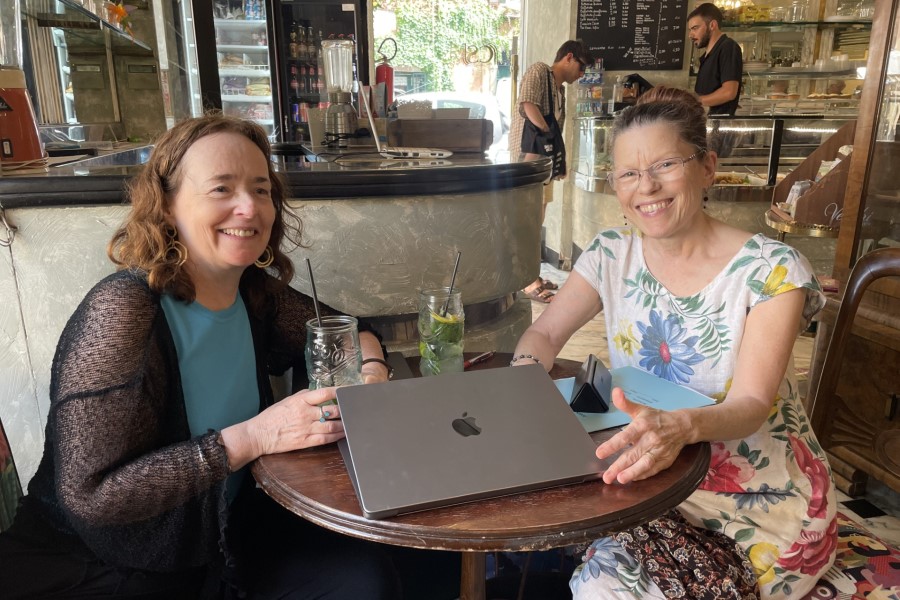Professor Fabrizio Conti Invited to UCLA to Discuss Paper on Paganism
On October 29, 2022, JCU History Professor Fabrizio Conti was invited by the University of California, Los Angeles (UCLA) – CMRS Center for Early Global Studies, to discuss his paper “Paganism, ‘Superstition’, and Christianization in Late Antique Northern Italy” at the California Medieval History Seminar.

Fabrizio Conti
The paper presented by Professor Conti has recently been published in the volume that he edited along with Professor Elizabeth Ann Pollard (San Diego State University) titled “Nemo Non Metuit”: Magic in the Roman World (Trivent, 2022). Professor Conti’s paper was one of the four papers presented and discussed at the California Medieval History Seminar at UCLA this semester. The Seminar meets four times a year and hosts four presenters each time, usually two professors and two graduate students.
Conti’s paper focuses on Maximus of Turin, preacher and first bishop of that city, and his contribution to shaping Christian identity in late antiquity. Flourishing between 395 and 415 CE, after Emperor Theodosius I had issued the Edict of Thessalonica (380 CE), defining Christianity as the official religion of the Roman state, Maximus composed and preached more than one hundred sermons.
These sermons still await to be analyzed as historical sources that can contribute to shedding light on the complex cultural and religious situation of the later Roman empire. It is through sources such as Maximus’ sermons that we can reconstruct patterns and strategies developed by this little-known figure to create a specific Christian identity in opposition to pagan beliefs and practices especially those referring to the realm of magic and superstition. For instance, Maximus refers to the interesting clash between Christian missionaries and some farmers still performing agricultural fertility rites in the Alpine valleys around Trent in the north of Italy.
These rites resembled the so-called lustratio agri (also called sacrificium ambarvale) consisting of the sacrifice of a bull, a cow, and a sheep which were led in procession before being sacrificed. These and other elements were to be progressively marginalized and condemned as superstition, in an age in which Christianity was clearly struggling to impose its dominion over the late Roman world, still seen as largely “pagan”. Professor Conti showed how this study can help reconstruct the complex process of individual and collective religious identity formation as well as the “clash of cultures,” especially in transitional historical times such as late antiquity, that would usher in the end of classical civilization and the onset of the early medieval period.
Fabrizio Conti (Ph.D., Central European University, 2011) is a lecturer in History at John Cabot University in Rome and an Arts and Humanities Advisor at the American Academy in Rome. Professor Conti’s teaching and research interests span the Late Antique, Medieval, and Renaissance periods, with an interdisciplinary approach to religious and cultural developments, and a focus on the history of magic and witchcraft. Among his publications is the volume co-edited with Elizabeth Ann Pollard Magic in the Roman World (8th c. BCE – 5th c. CE) (Trivent, 2022), the edited volume Civilizations of the Supernatural: Ritual, Witchcraft, and Religious Experience in Late Antique, Medieval, and Renaissance Traditions, with a foreword by Teofilo F. Ruiz (Trivent, 2020), as well as the monograph Witchcraft, Superstition, and Observant Franciscan Preachers: Pastoral Approach and Intellectual Debate in Renaissance Milan (Brepols, 2015). Professor Conti has worked in the catacombs of Rome as a docent and in the Vatican Secret Archive as an archivist, besides appearing in several TV documentary series.





